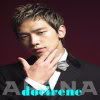Post by Eun Jae on Jun 5, 2006 10:48:54 GMT 7
Super Rookie
We are hooked on yet another Korean drama, called Super Rookie . It's a corporate dramedy, a genre that doesn't really exist in the U.S. but seems to be popular in Korea. I don't think I've ever seen an American TV show that was really about work. Of course American shows are set in workplaces (usually hospitals or police stations or law offices) but they usually focus more on relationships or "issues" than on the work itself. What I like about Super Rookie is that while there is a romantic subplot, the main focus of the show is on corporate corruption, ass-kissing, and office politics. Oh, and the show is hilarious too.
Of course, Korean shows, while different from American ones, are just as formulaic. Here are some common elements I've noticed in Korean workplace dramas:
1. There is usually a love triangle between three co-workers, typically an ex-boyfriend/ girlfriend, then another outsider who is interested in dating one of them.
2. At some point after a breakup, the jilted lover threatens to throw himself (or herself) in the Han River.
3. Often the reason for the breakup is that the lovers are from different social classes.
4. Usually the hero of the story is a lovable buffoon who doesn't fit in the upper-middle-class corporate world.
5. At some point, a parent always hits an adult child about the head and shoulders. (This happens on every single Korean show, to the point that it's become sort of running joke between A and me.)
One of the first Korean words I learned was chon-nom . It translates "hick" or "country bumpkin". But it also sort of means working class or uncouth. It's an insult, but on Korean shows the hero is often a chon-nom . Invariably there is a scene with the chon-nom eating ramen noodles from the lid of a pot.
Another thing I've noticed about Korean shows is that references to English or travels abroad are a mark of higher social status. In Super Rookie , the main character doesn't speak English very well, so I was shocked to learn that the actor is actually Korean-American . He certainly does a good job of faking bad English on the show!
We are hooked on yet another Korean drama, called Super Rookie . It's a corporate dramedy, a genre that doesn't really exist in the U.S. but seems to be popular in Korea. I don't think I've ever seen an American TV show that was really about work. Of course American shows are set in workplaces (usually hospitals or police stations or law offices) but they usually focus more on relationships or "issues" than on the work itself. What I like about Super Rookie is that while there is a romantic subplot, the main focus of the show is on corporate corruption, ass-kissing, and office politics. Oh, and the show is hilarious too.
Of course, Korean shows, while different from American ones, are just as formulaic. Here are some common elements I've noticed in Korean workplace dramas:
1. There is usually a love triangle between three co-workers, typically an ex-boyfriend/ girlfriend, then another outsider who is interested in dating one of them.
2. At some point after a breakup, the jilted lover threatens to throw himself (or herself) in the Han River.
3. Often the reason for the breakup is that the lovers are from different social classes.
4. Usually the hero of the story is a lovable buffoon who doesn't fit in the upper-middle-class corporate world.
5. At some point, a parent always hits an adult child about the head and shoulders. (This happens on every single Korean show, to the point that it's become sort of running joke between A and me.)
One of the first Korean words I learned was chon-nom . It translates "hick" or "country bumpkin". But it also sort of means working class or uncouth. It's an insult, but on Korean shows the hero is often a chon-nom . Invariably there is a scene with the chon-nom eating ramen noodles from the lid of a pot.
Another thing I've noticed about Korean shows is that references to English or travels abroad are a mark of higher social status. In Super Rookie , the main character doesn't speak English very well, so I was shocked to learn that the actor is actually Korean-American . He certainly does a good job of faking bad English on the show!



